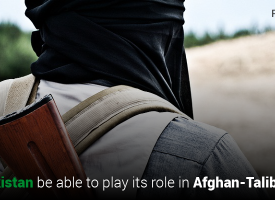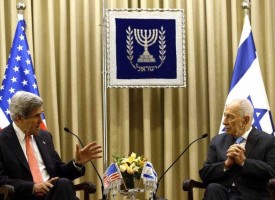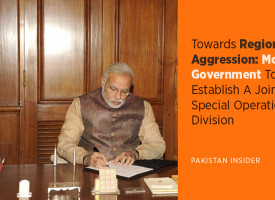The following is a concise English translation of an Urdu column by Dr. Safdar Mehmood for Daily Jang dated July 21, 2015.
******
Fundamentally, man is prone to notice things which are obvious; he has a tendency to judge things from their outward or “apparent” looks. This is why I advise my friends time and again that when studying historical figures, they shouldn’t focus on their apparent features; instead, they should ascertain what that figure’s closest aides, acquaintances and friends have to say, who are Men of Vision (Saahibaan-e-Nazar). The reason why I give more importance to opinions by Men of Vision is because they seek nothing except Allah’s Will. Such people stay aloof of worldly complications and speak the truth with confidence. While reading a few books, I noted some incidents which I found interesting, so I decided to share these with my readers.
You might have heard of this name because the new generation is only aware of people in their current era. There are two types of people in this world: one who is for a specific time and period, and the other for eternal pages of history; the latter comprises of names who reside in people’s hearts, who stay immortal despite the advancement of time; the names of such people continue leaving off their fragrance despite being buried in mud. Pir Jamaat Ali Shah, who passed away a long time ago, was a spiritual figure who set permanent camps inside people’s hearts; not only has the fragrance from his name remained intact, it nourishes the minds and warms the hearts.
It is obvious that I don’t know him personally; I am only familiar with his personality as a faithful worshipper, seeker of Divine Will and spiritual ambassador. The number of his faithful students and disciples in Pakistan was, and continues to be, in the tens and thousands. Once the blessings of spirituality are let loose, they continue to flow forever because it is a gift from my Lord; the changing weather and dynamics of the Age do not affect His gifts. Autumn, Spring, the dynamics of the Age, speed of time, decades and centuries of travel, death and life, all these are for people like us who are materialist and crave for worldly things. These are not for Men of Allah; yes, vicegerents are made from submission to Allah and this submission requires a lot of practice. To attain vicegerency is not something everyone can acquire, nor can everyone handle it properly. No one knows how long and tiresome the struggle to achieve vicegerency can be. People who reach till this stage are constant; people admired by Allah are the ones who adopt constancy. The vision of a Master (murshid) or Sheikh plays an important role in this process. Oftentimes, the sight of a Master or Sheikh upon a student or disciple is enough to take him through layers of observations and experiences to the point of constancy.
Pir Jamaat Ali Shah was an obedient, pious and virtuous personality. He admired the Quaid-e-Azam despite the fact that in those days, he normally used to wear English clothes. An ordinary person’s observation is limited to outward appearances but the Man of Vision’s sight is focused on hidden, spiritual depths inside.
Maulana Ashraf Ali Thanvi died on July 20, 1943. Not only was Maulana Ashraf Ali Thanvi a learned, pious and spiritual personality, he was also a renowned scholar of Quranic exegesis (tafseer) and biography (seerat) of the Prophet (peace and blessings be upon him). He spent his entire life proselytizing faith (tableegh) and training his students. His followers today also number in the tens of thousands. Maulana Ashraf Ali Thanvi was a staunch supporter of Quaid-e-Azam, the Muslim League and the Demand for Pakistan. One of his students, Maulana Shabbir Ahmed Usmani, was taken along by Quaid-e-Azam for the flag unfolding ceremony in the new State of Pakistan on August 15, 1947. It was Shabbir Ahmed Usmani who waved the new flag of an independent Pakistan for the first time in Karachi, even though Quaid-e-Azam was present at the occasion himself. It was the Quaid’s wish that Shabbir Ahmed Usmani wave the new Pakistani flag. On Quaid-e-Azam’s instructions, Zafar Ahmed Usmani, nephew of Maulana Ashraf Ali Thanvi, first waved the Pakistani flag in Dhaka (East Pakistan) on August 15, 1947. It is evident from these instances how much Quaid-e-Azam valued and cherished his relationship with Maulana Ashraf Ali Thanvi. Maulana Ashraf Ali Thanvi was a great religious and spiritual figure whereas Quaid-e-Azam wore English clothes and spoke in English. Once someone asked the Maulana why he was supporting a leader who dresses and talks like the English. To which the Maulana replied, “You observe the apparent whereas my focus is on the hidden, spiritual domain; Jinnah is a firm and truthful Muslim on the inside”.
Pir Jamaat Ali Shah neither had a political agenda, nor any worldly objective or benefit. He supported the Demand for Pakistan and Quaid-e-Azam just like the frontier region’s famous Pir of Maanki Sharif. Quaid-e-Azam was himself so respectful towards Pir of Maanki Sharif that he specially went to meet the influential Pir at his residence. Pir of Maanki Sharif played an active, crucial role in the Pakistan Movement. Many Men of Vision bestowed success to the Pakistan Movement. Pir Jamaat Ali Shah once gifted a copy of The Qur’an, a praying mat and a praying bead to Quaid-e-Azam. In response, Quaid-e-Azam wrote the Pir a letter of thanks and added, “You have sent me The Qur’an so I can study and implement Allah’s commandments; you have sent me a prayer mat because whosoever does not obey Allah, his people won’t obey him and you have sent the praying bead so I may recite salutations (durood) upon the Prophet (peace and blessings of Allah be upon him); because whosoever does not recite salutations upon the Prophet, he does not receive Allah’s mercy“. When these words from the letter were read out to Pir Jamaat Ali Shah, he said, “By Allah! Muhammad Ali Jinnah is a Friend of Allah (Wali). How did he know I sent those gifts with these intentions?”
All India Muslim League’s annual convention took place between December 26 and 27, 1938 at Patna; it was the first Muslim League convention to which Maulana Ashraf Ali Thanvi sent a delegation of his chosen scholars; among them was Maulana Shabbir Ali Thanvi, a nephew of Maulana Ashraf Ali Thanvi. The delegation was led by Maulana Murtaza Hassan. Maulana Shabbir Ali Thanvi wrote, “When we reached Patna, we said we wouldn’t attend the convention until we meet Mr. Jinnah. The meeting was arranged through Nawabzada Liaquat Ali Khan; this delegation told Quaid-e-Azam, “Muslims are a religious community. Success will not be achievable unless religion is included in politics. Separating religion and politics is what the Europeans do. When Mustafa Kemal discarded religion, the Sultanate of Turkey was left with a small territory; when Amanullah Khan discarded religion, the Afghan people got rid of him… we do not ask of the politicians to become very pious and virtuous but we will request you to offer regular prayers”. Quaid-e-Azam replied, “A debate can be sparked: should the imam be Deobandi, Sunni or Shia?” We (the delegation) replied, “All you have to do is announce that we will offer prayers in congregation (baa-jamaat)”, and so the Muslim League convention was paused at 2 o’clock in the afternoon by saying that it was a break for Zuhr prayer. The judge (qazi) of the city (Patna) assumed imamate and Quaid-e-Azam offered prayers along with 100,000 Muslims”” (Ref: ‘Maulana Ashraf Ali Thanvi aur Tehreek-e-Pakistan’ by Professor Ahmed Saeed, pg 148).
What’s interesting is that Maulana Ashraf Ali Thanvi had already predicted the creation of Pakistan in 1938. To me, this is only possible if the individual making such a prediction is a Man of Vision, hence there is nothing extraordinary to it. According to Saeed Ahmed Usmani, Maulana Thanvi’s brother-in-law, he (Saeed) was a government employee and not optimistic about the Pakistan Movement. One night, Maulana Thanvi called him (Saeed) and said, “I’ve come to know of your thoughts, there’s nothing to worry about. Many gnostics (majzoobs) have told me that the Islamic Sultanate will be established in 1947” (Ref: ‘Maulana Ashraf Ali Thanvi aur Tehreek-e-Pakistan’ by Professor Ahmed Saeed, pg 182).
Some things are still unsaid. Maybe I will write on them later.
******








No comments!
There are no comments yet, but you can be first to comment this article.